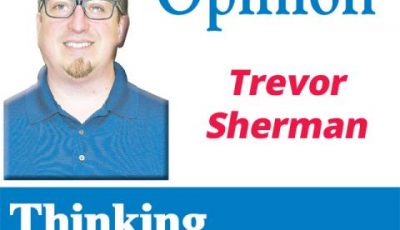Eugene Siler, a life revisited (part 6)
After a successful four-year stint as a congressman in the United States House of Representatives, Williamsburg’s Eugene Siler, Sr. decided to once again run for re-election in 1958. Not content to simply rest on his laurels, though, he continued to work hard on behalf of his district while campaigning to remain in Washington for a third term.
In March of 1958, Siler appealed to President Dwight Eisenhower and Col. Eugene Stann, Army engineer, to urge public works programs to relieve woes related to unemployment in Southeastern Kentucky.
In a letter to the president, Siler proposed the building of roads, trails, parking areas and sanitary, water and fire-control facilities in all national forests. In his letter to Col. Stann, he urged a speed-up of studies on some flood-control projects in the area.
“The economic recession in my congressional district is fast developing into a depression of serious proportions,” Siler wrote to Col. Stann. “With thousands of people out of work and unable to find employment to support themselves and their families.”
Specifically, Siler requested “quick completion” of studies that were being conducted on several flood-control projects on the Cumberland River, including a proposed hydroelectric dam in McCreary County, a project on Lynn Camp Creek in Corbin that would affect Whitley, Knox and Laurel counties, and the Laurel River dam project that would affect Whitley and Laurel counties.
Siler also requested completion of a study being conducted for a potential new floodwall located on Yellow Creek in Middlesboro, and he noted two projects in Harlan County as well.
“I can see nothing in the making at this time that would give employment to my people, unless we can go forward with the construction of all or a substantial number of the flood-control projects,” Siler wrote.
Later that same month, Siler allowed his patriotic colors to proudly shine through when he famously gave a speech before Congress on behalf of the “living unknown soldier.”
In the speech, which was given as a response to proposals to cut or decrease the pensions of United States veterans, Siler said, “Mr. Speaker, over yonder across the river in the Arlington Cemetery is the Tomb of the Unknown Soldier. It is of white marble. The inscription says, ‘Here rests in honored glory an American soldier known but to God.’”
“No one really knows,” Siler continued. “But he may be white or colored, rich or poor, Catholic, Jew, Protestant or none of these. He may come from Briar Creek in my home county in the mountains of Kentucky or he may come from the great, throbbing city of New York. God only knows.”
“But we do know he is dead, and my present remarks are not about him at all. However, I want to talk a little right now upon the ‘living unknown soldier.’ The one still breathing and keeping house somewhere in our country up at the head of the hollow – the doughboy, the GI, the one Ernie Pyle sometimes referred to as the dogface.”
“My man is still alive. He is still with us. Now the frost of many winters may be upon his head above those stooping shoulders. His cough may be asthmatic. His palsied tremor of hands may be pronounced. His eyes once keen upon a gun barrel may be quite dim in these days of 1958. Yet, he is still around here in our land and he is supremely worthy of our thoughtful consideration in the Congress of the United States as we ponder many grave problems in our present day and age.”
“There has been a considerable amount of callous talk about cutting down or cutting out the pension of that living unknown soldier. And some have even though of economizing on the service connected compensation now provided by laws previously enacted by this body on behalf of that same living unknown soldier.”
“The Bradley Commission has made its report. And some people may be about ready to change the symbolic cognomen of our country from Uncle Sam to Uncle Judas, the ungrateful betrayer for thirty pieces of 1958 economy as the price upon the living unknown soldier – sold out by acceptance of the Bradley report by this Congress. I, for one, refuse. I, for one, feel that this living unknown soldier should keep his benefits until the sun grows cold and as long as the years shall fall like grains of sand through the fingers of God Almighty upon the seashores of time.”
The speech goes on, and while I would like to share it here in its entirety, space limitations simply will not allow. You can get a real sense from the excerpt above, however, just how passionately Siler felt about this particular topic.
After reviewing all of the coverage of Siler’s many exploits while serving in the U.S. House of Representatives, this speech stands out as, truly, one of his brightest shining moments. And when considering just how many shining moments the man had, that is saying something.
Siler would go on to successfully complete another re-election bid in 1958, but not before he did much more to make the voices of the people of the Eighth District heard in Washington. More on that in the next installment.
Reminder – After his political career came to an end, Eugene Siler continued to serve the people of Whitley County, using a newspaper column that he titled “Head or Tales” to keep the local citizenry informed of various important topics. He would also often discuss historical matters, offer thoughts on recent events, and more.
To learn how you can read many of these Head or Tales columns for yourself, contact the Whitley County Historical and Genealogical Society at (606) 549-7089.





